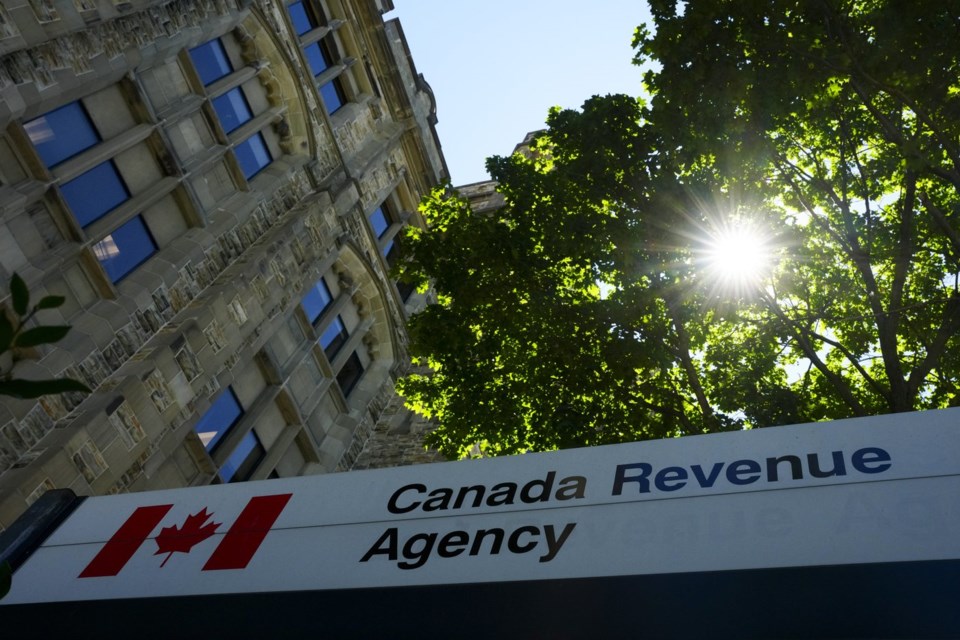OTTAWA — For many Canadians, filing their taxes often means a refund, but for some, tax time can mean a bill that's unexpected or more than anticipated.
If that's you and you don't have the cash on hand to pay the bill, tax experts say not to panic.
Ottawa-based accountant Marlene L. Grant says you need to file your tax return on time even if you can't pay the bill or you will end up paying more.
"You need to file it because you don't want to have late filing and then late payment penalties and all of that," Grant said.
The late-filing penalty charged by the Canada Revenue Agency is five per cent of your 2024 balance owing, plus an additional one per cent for each full month that you file after the due date to a maximum of 12 months.
The penalty is worse if CRA charged a late-filing penalty for 2021, 2022 or 2023 and requested a formal demand for a return. In that case, the late-filing penalty for 2024 will be 10 per cent of the balance owing plus an additional two per cent for each full month that you file after the due date to a maximum of 20 months.
The penalties are in addition to interest that CRA will charge on any unpaid amount owing for 2024, starting the day after the money is due.
Grant said if you can borrow money at a lower interest rate than CRA charges you, that could be an option, but if you can't get your hands on the cash you need, she recommends to clients that they pay what they can and then reach out to CRA to make a payment arrangement.
"Make sure you abide by that payment arrangement, because if you don't, then they have the right to come back and say, 'That's it. We're going to take the money now,'" she said.
The tax filing deadline this year is April 30, while the self-employed or those with a spouse or common-law partner that is self-employed have until June 16 this year because June 15 lands on a Sunday.
However, if you owe money, whether you are self-employed or not, the deadline to pay your taxes is April 30. That means, Grant said, if you qualify for the later filing deadline and owe money, CRA will charge interest on the balance after April 30 until the bill is paid, though you won't face a late-filing penalty unless you miss the June deadline.
An employer will deduct income tax from an employee's regular paycheque, but for freelancers or contract workers, that may not be the case, resulting in a bill come tax time.
Those who work for more than one employer may also end up with not enough being deducted, while Canadians with taxable investment gains or earnings from a side hustle may also face more tax than they planned for.
Tax consultant Sunny Widerman said if you have an outstanding tax bill, CRA may take federal payments such as the GST/HST credit and instead apply them to your debt.
"If you owe anything to CRA and you've got a payment coming, it's immediately going to get snatched," she said.
Whatever you do, Widerman said don't ignore CRA and hope they will forget about you. If they contact you, it is important to respond.
"They are a lot more flexible than people seem to think they are," she said. "But the thing they hate the most is silence."
This report by The Canadian Press was first published April 10, 2025.
Craig Wong, The Canadian Press



